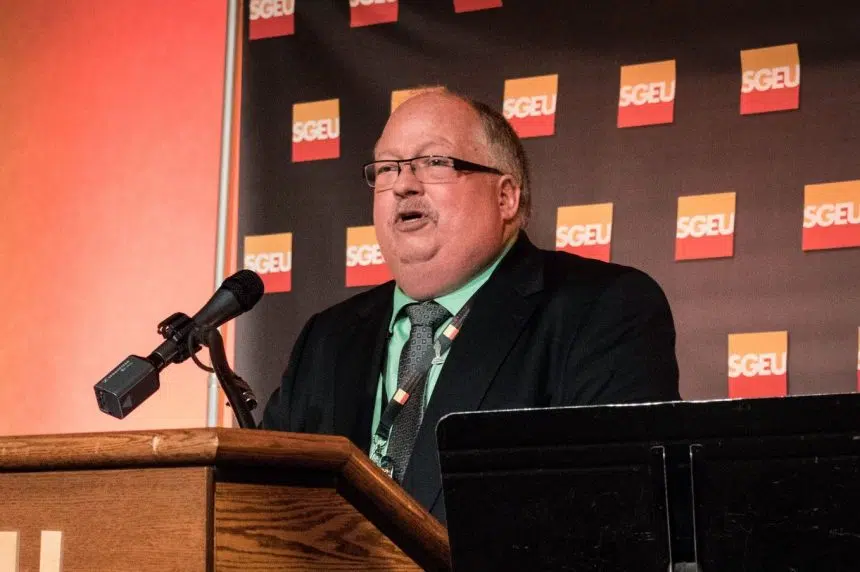The provincial government has had money on the brain over the last little while, putting out the budget for the coming year on Wednesday.
The head of the Saskatchewan Government and General Employees’ Union (SGEU) is also thinking about money, in the form of collective bargaining.
In the legislative building’s rotunda on budget day, Bob Bymoen was talking about the 34 out of 38 government collective bargaining agreements which still need to be resolved.
“We hope that the government is prepared to step up to the table in the future and deal with that issue,” he said.
Bymoen said he was disappointed to see there wasn’t any money set aside for collective bargaining agreements.
Finance Minister Donna Harpauer said there is flexibility in the budget to address agreements in the coming year.
When asked about the budget surplus, Bymoen said he wasn’t sure that surplus was really there.
“What this government calls surpluses and what we call debt are two different things to begin with,” said Bymoen. “It’s hard to talk surplus when you’re $20 billion in debt.”
Bymoen said the provincial government has another debt — a debt to public sector workers to resolve their collective agreements.
He did say he was happy not to see any cuts to the public sector in the budget, but that doesn’t erase the thousands of workers who’d been cut in the past. Bymoen said he’s hearing from front-line workers who’ve had to take on more since those cuts.
“Many of them are begging for me to get to this government and ask for more support on the front line, that they can’t maintain the workload that they have today,” he said.
Lost opportunity
Bymoen is also lamenting what he calls the “lost opportunity” of cannabis revenue.
He said the provincial government could have taken care of warehousing and retailing of legal marijuana, bringing in more money. But, Bymoen said, the province gave both away to the private sector.
“We think that that’s unfortunate that the government would lose that opportunity, yet they’re going to be on the hook for more training and more policing and dealing with the aftereffects of more cannabis use as well,” he said.







